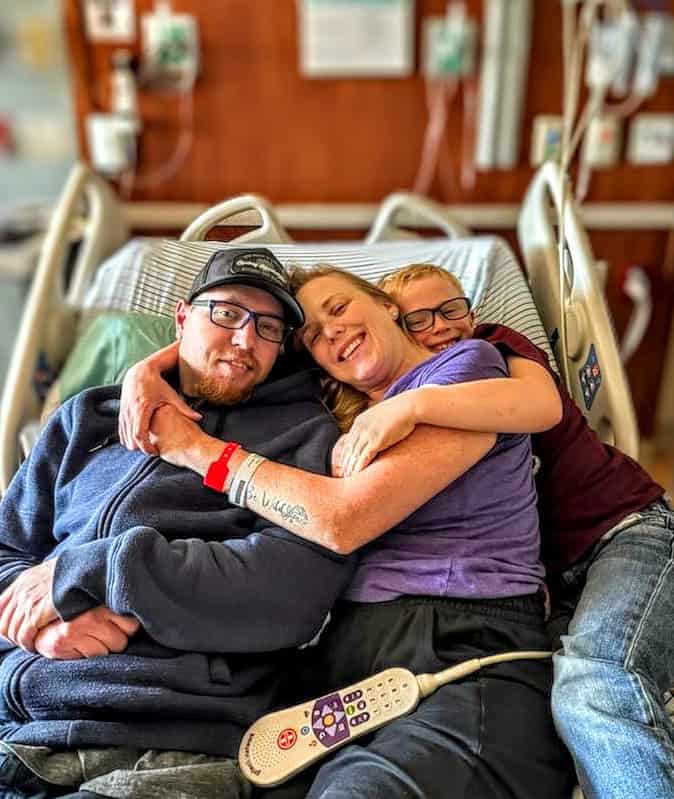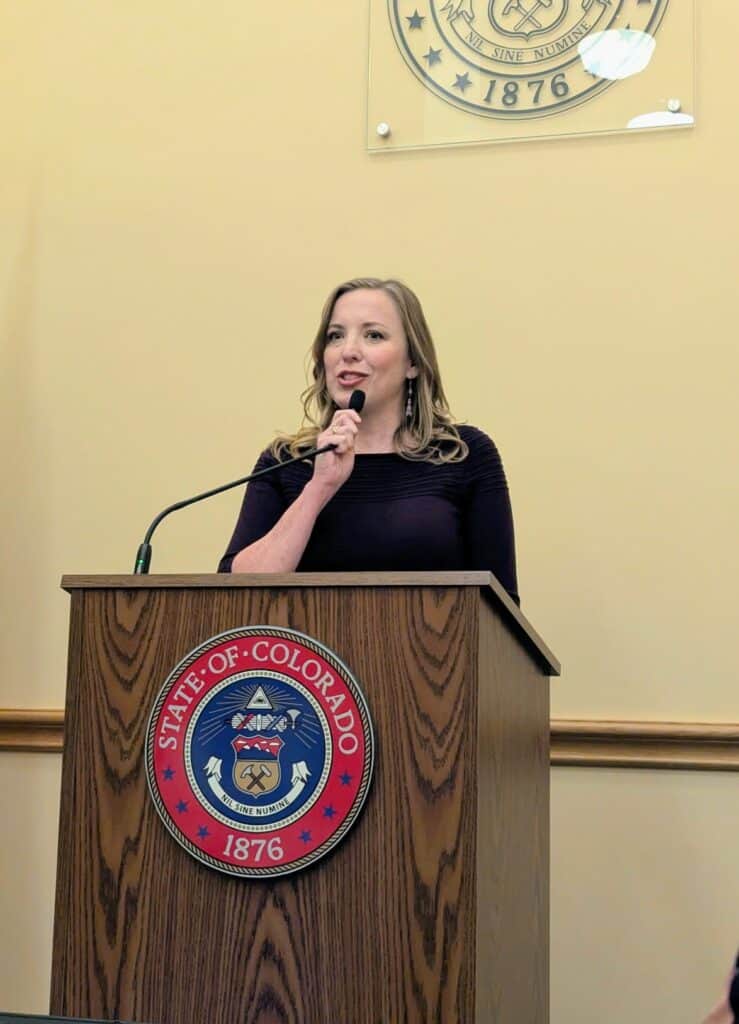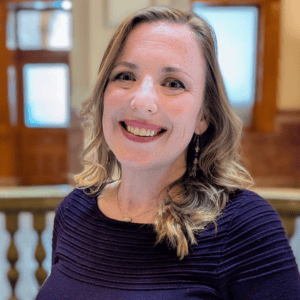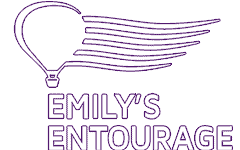Lignes de progrès : Mon voyage de la maladie grave à la défense du changement
Pendant le Mois de la sensibilisation à la fibrose kystique, l'Entourage d'Emily invite les membres de la communauté de la fibrose kystique (FK) à partager leur histoire. Le billet d'aujourd'hui met en lumière l'histoire d'Amanda Boone, une adulte atteinte de FK.
 Il y a des moments dans la vie qui laissent une marque indélébile sur votre âme. Pour moi, l'un de ces moments s'est produit au milieu de la nuit, lorsque j'ai respiré profondément pour la première fois depuis plus de dix ans. C'était le genre de respiration dont on ne se rend pas compte qu'elle nous a manqué jusqu'à ce qu'on la ressente à nouveau. Au début, j'étais confus, incertain de ce qui se passait, mais au moment où je l'ai reconnu pour ce qu'il était, j'ai compris qu'il s'agissait d'une respiration profonde. complet souffle. J'ai réveillé mon mari. Il s'est réveillé en sursaut, pensant que quelque chose n'allait pas du tout, car nous vivions en mode survie depuis des années. Mais non, c'était une bonne nouvelle ! Un moment qui change la vie.
Il y a des moments dans la vie qui laissent une marque indélébile sur votre âme. Pour moi, l'un de ces moments s'est produit au milieu de la nuit, lorsque j'ai respiré profondément pour la première fois depuis plus de dix ans. C'était le genre de respiration dont on ne se rend pas compte qu'elle nous a manqué jusqu'à ce qu'on la ressente à nouveau. Au début, j'étais confus, incertain de ce qui se passait, mais au moment où je l'ai reconnu pour ce qu'il était, j'ai compris qu'il s'agissait d'une respiration profonde. complet souffle. J'ai réveillé mon mari. Il s'est réveillé en sursaut, pensant que quelque chose n'allait pas du tout, car nous vivions en mode survie depuis des années. Mais non, c'était une bonne nouvelle ! Un moment qui change la vie.
Vivre avec la fibrose kystique (FK) a été pour moi une véritable montagne russe. Dans ma jeunesse, j'ai réussi à rester relativement en bonne santé, tout en étant soumis aux hospitalisations et aux traitements de routine qui accompagnent cette maladie. J'ai même gravi les échelons de l'entreprise, passant d'agent de location à gestionnaire immobilier, tout en jonglant avec les complexités de la FK.
À bien des égards, je me suis sentie chanceuse. J'avais une carrière florissante, un mariage merveilleux et j'étais capable de rester en bonne santé. Mais sous la surface, je me battais toujours, pour respirer, pour rester en bonne santé et pour continuer à aller de l'avant malgré mon espérance de vie.
Lorsque mon mari et moi avons décidé de fonder une famille, on m'a diagnostiqué un diabète lié à la fibrose kystique (DAFK) et j'avais régulièrement des saignements pulmonaires. Après mûre réflexion, nous avons opté pour la FIV avec une mère porteuse. Nous avons eu la chance de réussir le transfert d'embryons et notre fils était en route. Mais alors que je commençais à espérer un avenir plus radieux, ma santé s'est détériorée de façon spectaculaire. J'ai contracté la grippe en décembre 2014, et c'est là que les choses ont commencé à se gâter. Ma fonction pulmonaire ne s'est jamais complètement remise de cet incident, et je me suis retrouvée dans un cycle constant d'infections, de saignements pulmonaires et de fièvres. À la naissance de notre fils, j'ai dû cesser de travailler en raison de la détérioration de mon état de santé, et j'ai dû compter sur le soutien de ma famille pour m'occuper de lui.
Deux ans plus tard, j'ai demandé un deuxième avis au National Jewish Health dans le Colorado. On m'a conseillé de déménager au Colorado pour un traitement plus approfondi. Les choses n'ont fait qu'empirer à partir de là. On m'a diagnostiqué un mycobacterium abscessus, une bactérie difficile à traiter qui peut entraîner un déclin rapide de la fonction pulmonaire et une mortalité chez les personnes atteintes de FK, ce qui a nécessité un traitement par antibiotiques intraveineux à long terme. Mon corps s'affaiblissait et la perspective d'une double transplantation pulmonaire se profilait à l'horizon. Je me préparais mentalement et physiquement à cette éventualité lorsque, en octobre 2019, tout a changé.
Une thérapie révolutionnaire ciblant les mutations a été approuvée. J'en avais entendu parler, mais je n'avais jamais pensé qu'elle pourrait me convenir. Avec une mutation rare dite "non-sens", on m'a d'abord dit que les modulateurs ne m'aideraient pas. Mais comme ma deuxième mutation était une mutation commune, j'ai pu l'essayer. Pour être efficace, le traitement doit simplement bénéficier à l'une des deux mutations.
Quatre jours après avoir commencé la nouvelle thérapie, je me suis réveillé au milieu de la nuit, j'ai respiré profondément et j'ai mesuré ma fonction pulmonaire. Elle avait augmenté de dix pour cent !
En l'espace de quelques jours, mon corps a réagi d'une manière que je n'aurais jamais crue possible. Peu de temps après, j'ai été évaluée pour une greffe et on m'a dit que je n'en avais pas besoin. Cette thérapie ciblée sur les mutations a été ma bouée de sauvetage.
Bien que ma santé se soit améliorée comme je n'aurais jamais pu l'imaginer, je savais que je n'étais pas guérie. Mon corps avait trop souffert. J'avais encore besoin de traitements, je luttais toujours contre le diabète lié à la FK et je risquais toujours d'être hospitalisée. Mais la progression de ma maladie s'était arrêtée et, pour la première fois depuis des années, j'ai ressenti de l'espoir.
 Au cours de l'été 2023, alors que j'essayais de reprendre pied et de vivre avec ma nouvelle santé, mon monde a de nouveau été ébranlé. J'ai appris que ma "bouée de sauvetage", la thérapie ciblant la mutation, était examinée par un conseil d'État en raison de son coût élevé, et que la possibilité d'un plafonnement du prix du médicament se profilait à l'horizon. Cela signifiait que les patients du Colorado n'auraient plus accès au médicament si la commission ne parvenait pas à un accord avec le fabricant. La possibilité de perdre l'accès au médicament qui avait m'a sauvé la vie était terrifiante.
Au cours de l'été 2023, alors que j'essayais de reprendre pied et de vivre avec ma nouvelle santé, mon monde a de nouveau été ébranlé. J'ai appris que ma "bouée de sauvetage", la thérapie ciblant la mutation, était examinée par un conseil d'État en raison de son coût élevé, et que la possibilité d'un plafonnement du prix du médicament se profilait à l'horizon. Cela signifiait que les patients du Colorado n'auraient plus accès au médicament si la commission ne parvenait pas à un accord avec le fabricant. La possibilité de perdre l'accès au médicament qui avait m'a sauvé la vie était terrifiante.
Je me suis immédiatement impliquée dans la défense des droits, en assistant aux réunions du conseil d'administration et en m'entretenant avec les législateurs. Je savais que nous avions des montagnes à déplacer. J'ai noué des liens avec d'autres personnes atteintes de FK et des soignants, et nous avons formé ensemble un groupe de défense des droits, CF United. Nous avons travaillé sans relâche, en écrivant des lettres, en rencontrant des fonctionnaires et en faisant entendre notre voix. Notre message était clair : cette thérapie ciblant les mutations était plus qu'un simple médicament ; c'était une grâce salvatrice, et nous devions en protéger l'accès.
Le processus a été difficile et nous avons parfois eu l'impression de parler dans le vide. Lors d'une réunion, le conseil d'administration ne s'est pas présenté et nous avons dû plaider auprès de fonctionnaires qui semblaient indifférents à nos préoccupations. Mais nous n'avons pas reculé. Plus nous défendions notre cause, plus nous voyions l'impact de nos efforts. En décembre 2023, nous avons reçu la nouvelle pour laquelle nous nous étions battus : le conseil d'administration a voté que le médicament n'était pas "inabordable", ce qui signifie que le plafonnement des prix ne serait pas imposé. C'était comme une victoire, non seulement pour moi, mais aussi pour toute la communauté FK du Colorado et d'ailleurs. Et rien de tout cela n'aurait été possible sans mon regain de santé qui m'a permis de me montrer à la hauteur.
Mais alors que nous fêtions l'événement, je ne pouvais ignorer l'autre réalité pressante : si j'ai fait partie des chanceux qui ont bénéficié de cette thérapie, nombreux sont ceux qui ne peuvent toujours pas en bénéficier. Ces personnes attendent toujours leur traitement révolutionnaire. Je ne peux pas imaginer être à leur place. Je compatis, car je me souviens de ce que c'était. Je ne défends pas seulement les personnes qui ont eu accès à des médicaments qui ont changé leur vie ; je défends aussi les personnes comme Emily et tous ceux qui font partie du 10% final. Nous ne cesserons de nous battre tant que toutes les personnes atteintes de FK ne disposeront pas d'une option de traitement qui leur sauvera la vie et d'un accès total à ce traitement.
Auteur

Amanda Boone est atteinte de mucoviscidose et cofondatrice de CF United, une organisation de base qui garantit un accès abordable aux thérapies pour les patients atteints de mucoviscidose et de maladies rares. Amanda est devenue l'une des principales voix de la protection de l'accès, en particulier lorsque son médicament salvateur a été confronté à des problèmes d'accessibilité financière par l'intermédiaire du Colorado's Prescription Drug Affordability Board (Conseil pour l'accessibilité des médicaments sur ordonnance). Amanda utilise maintenant sa voix pour s'assurer que les patients sont entendus, tout en trouvant la paix dans le Colorado rural avec son mari, son fils, ses chiens et ses chevaux. Amanda fait face à sa maladie par le rire et le réalisme.
